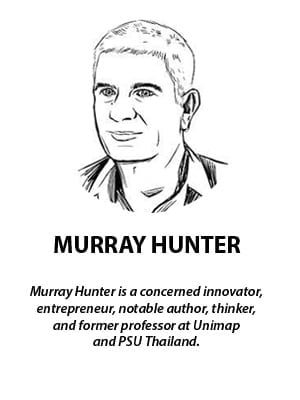
In my previous article on PAS, I covered the rural heartlands. In this article I will cover the development of urban support for PAS.
Parti Islam Se-Malaysia (PAS) is a political party led by Islamic scholars and teachers, and was primarily confined to Kelantan and Terengganu for many decades.
It wasn’t until PAS joined the Barisan Alternatif coalition during the ‘Reformasi’ years, that the party went all over Malaysia. The PAS partnership with Bersatu under Muhyiddin Yassin, even propelled it into the national government from 2020 to 2022.
Now PAS is the largest political party represented in the federal parliament with 43 MPs.
Over the decades, PAS has built-up strong rural support. It now controls the state governments of Kelantan and Terengganu.
The party is in a coalition government with Bersatu in Kedah and took control of Perlis through the defection of former Umno warlord Shahidan Kassim in Perlis.
PAS has developed kampung communities in the rural areas, which have expanded into semi-urban regions, through Perlis, Penang, Perak, Selangor, Melaka, and Johor.
In the last general election, PAS won several semi-urban parliamentary seats including Kuala Kedah (Kedah), Alor Setar (Kedah), Permatang Pauh (Penang) and Kapar (Selangor), all from PKR, as well as Parit (Perak) and Jasin (Melaka) both from Umno.
PAS’ strategy
In an article published on HarakahDaily Online last week, Ahmad Fahmi Mokhtar of the Darulnaim Research Institute described the PAS strategy into the urban areas of Malaysia as one which “creeps silently to tear down city walls.”
This is being undertaken by diverse groups within PAS, including religious scholars, academics, professionals, civil servants, educators, and party activists. It has been assisted by the migration of many rural youth into the cities for work.
These groups have been setting up religious study groups, Quranic and Arabic tuition centres, suraus or prayer centres, and various types of businesses. They project themselves through the skilful use of social media, where urban Malay Muslims welcome the opportunity to study Islam and the Arabic language in more depth.
Many Malay professionals, civil servants, academics, and youth are sympathetic to the philosophy/theology of PAS. It fits in with the view of Tawhid (oneness with God), and how Islam should be practiced in society.
Organizations like IKRAM and ABIM are popular among professionals and the middle-class Malays. These organisations provide an environment, where an Islamic outlook on life and society is supported.
The education factor has been advantageous for PAS. Islamic education has done much of the hard work for the party. PAS only needs to come along and show the youth they are the natural party to support for good Muslims.
This often flows on to support for PAS electorally. HarakahDaily Online reaches more than 1 million hits per month and provides diverse news with an Islamic slant. 70 percent of Harakah Daily’s readers are in the 18- to 34-year age group.
There is another factor which is increasing support for Perikatan Nasional (PN) – made up of PAS & Bersatu – in Malay majority urban areas. That is the poor perception of PKR and Umno among some Malay groups. Many have lost trust in Umno and are suspicious of PKR.
Pakatan Harapan created a credibility deficit when Umno president Ahmad Zahid Hamidi was attacked during the GE15 election campaign, only to be appointed deputy prime minister, after the election.
In addition, voters are generally dissatisfied with the performance of the ‘unity government’. PN will benefit if the ‘unity government’ doesn’t improve their act (from this Malay perspective). This is why Anwar Ibrahim took the position he did on the “Allah” issue.
This hypothesis will be tested in the coming state polls, across urban and mixed constituencies. Umno and PKR hasn’t achieved the increase in popularity they had hope for since their formation of government in early December, last year.
This was the primary reason Malaysia Madani was created – as a philosophy that could be sold as something compatible with the concept of Tawhid. However, to date there has been a PR issue with Malaysia Madani, with it being seen as an empty slogan, rather than a powerful ideology behind governance.
The PAS urban strategy should bear fruit in the coming Selangor and Penang state elections. We should see a reduction in PH’s majorities in both states as PN captures several seats. These are the traditional support bases for both DAP and PKR.
It would be a big ask for PAS to win across the board. However, with the Bersatu win in the federal seat of Putrajaya, PAS should be able to build a bridgehead in the urban areas that are majority Malay.
Finally, the most important factor is the ability of political parties to motivate their supporters to come out and vote on polling day.
PAS theology probably adds to the motivation of PAS supporters to turn out, compared to Pakatan Harapan and Umno voters. All parties win and lose elections on voter turnout. PAS has some advantage here. - FMT
The views expressed are those of the writer and do not necessarily reflect those of MMKtT.


No comments:
Post a Comment
Note: Only a member of this blog may post a comment.